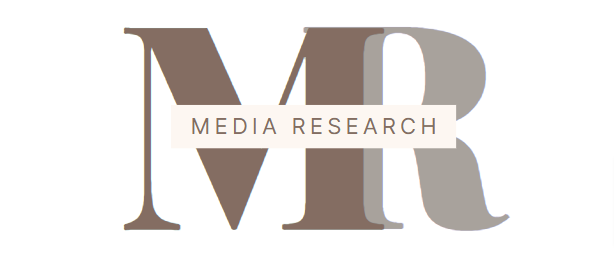It’s no secret that our eyes play a significant role in our overall quality of life. The importance of maintaining good eye health cannot be overstated. From daily activities like reading and driving to relishing the beauty of nature and expressions on a loved one’s face, our eyes allow us to connect with the world.
Read on to learn more.
What Is the Role of Optometrists in Detecting Diseases?
Comprehensive Eye Exams
An optometrist conducts a detailed examination of the eyes to detect any abnormalities or diseases. They include a series of tests using high-tech tools that can assess not only your visual acuity but also the overall health of your eyes.
Glaucoma Detection
Glaucoma is a severe eye condition that can lead to blindness if left untreated with its subtle onset. Indicators like high eye pressure may not inflict noticeable symptoms until the disease has progressed. Optometrists are skilled at detecting the early signs of glaucoma, safeguarding patients from severe vision loss.
Peripheral Vision Check
The peripheral vision check is an instrumental part of the eye exam. It helps in assessing how much you can see at the edge of your vision without moving your eyes. Optometrists assess this aspect to find early signs of conditions like glaucoma.
Refraction and Visual Acuity Test
Optometrists conduct a refraction and visual acuity test to determine the sharpness of your sight at different distances. This helps to design glasses or contact lens prescriptions, enhancing your vision exactly.
Advanced Diagnostic Techniques
With constant upgrades in technology, optometrists today can utilize advanced diagnostic techniques. These techniques include retinal photography, optical coherence tomography (OCT), and corneal topography, providing a greater depth of information for diagnosis and treatment.
As part of a full-scope optometry practice, an optometrist can detect, diagnose, and help manage or co-manage various diseases in conjunction with other healthcare providers.
What Diseases Can Be Diagnosed During an Eye Exam?
Age-Related Macular Degeneration
Optometrists can diagnose age-related macular degeneration (AMD) – a condition leading to vision loss due to deterioration of the macula.
Diabetic Retinopathy Diagnosis
Diabetes can result in damage to the eyes, leading to blurry vision or even blindness. During an examination, an optometrist can spot signs of diabetic retinopathy – leakage of blood vessels caused by high blood sugar levels.
Cataract Detection
A comprehensive eye exam can diagnose cataracts, characterized by a clouding of the eye’s natural lens, leading to blurred or faded colors.
Blepharitis Diagnosis
Detecting blepharitis, a condition that inflames the eyelids, is an integral part of an optometrist’s role in managing eye health.
Dry Eye Disease Discovery
An eye exam can also reveal signs of dry eye disease – a condition that affects the tears’ quality or quantity, causing discomfort or vision problems. Spending time to find a specialist, like the eye doctor in Bloomington, IN, can be beneficial for you in the long run.
These practitioners are well-trained eye care specialists who can help detect and manage these and many other eye conditions.
What Are the Early Signs of Eye Diseases?
- Blurred or Cloudy Vision: Any sudden or gradual changes in vision may indicate underlying eye diseases. The difference could range from generalized blurring to specific issues like trouble seeing at night or glare sensitivity.
- Sudden Spots or Floaters: Spots or ‘floaters’ appearing suddenly in your vision could be a sign of retinal diseases or other serious conditions that require immediate attention.
- Frequent Prescription Changes: If your eyeglass or contact lenses prescription changes frequently, it could be an indication of eye health issues.
- Persistent Eye Redness or Irritation: While occasional redness can be due to various benign factors like allergies or tiredness, persistent redness or irritation might suggest more serious conditions like uveitis or glaucoma.
- Double Vision: Seeing double, especially when it happens frequently or is accompanied by other symptoms like pain or nausea, can indicate a range of eye conditions from astigmatism to more severe neurological issues.
- Loss of Peripheral Vision: Gradual loss of side vision might often be an early sign of conditions like glaucoma.
- Pain in the Eye: Although most eye diseases are painless, pain in the eye can sometimes indicate conditions like glaucoma, eye injury, or infection.
How Can Regular Eye Examinations Aid in Early Diagnosis and Prevention of Vision Loss?
Retinal Examination
A retinal examination allows an optometrist to survey the back of the eye, including the retina, optic disc, and underlying blood vessels for diseases.
Eye Pressure Measurement
A fundamental part of any eye exam is the measurement of eye pressure, which is crucial in detecting diseases such as glaucoma.
Eye Health Checkup as a Holistic Approach
Eye health checkups play a critical part in the holistic view of personal health care. This is because many diseases like diabetes, high cholesterol, and cancer can be detected during a routine eye examination.
High-Tech Tools in Eye Examination
High-tech tools in eye examination have revolutionized the way optometrists diagnose and treat eye diseases. They have made observations more precise and treatments more effective.
How Can Optometrists Help in Developing Eye Disease Treatment Plans?
In the treatment plan development, optometrists can recommend various solutions based on the specific disease diagnosed. This could range from glasses or contact lenses for refractive errors, medical treatments for diseases like glaucoma, or surgical treatments.
For conditions like dry eye disease, solutions could include simple home treatments, prescription drugs, or more advanced procedures such as dry eye therapy.
Conclusion
A regular visit to the optometrist should be as routine as brushing your teeth daily. Optometrists are your partners in maintaining good eye health and preventing vision loss. Schedule your comprehensive eye exam today and ensure the health and longevity of your precious sight.


